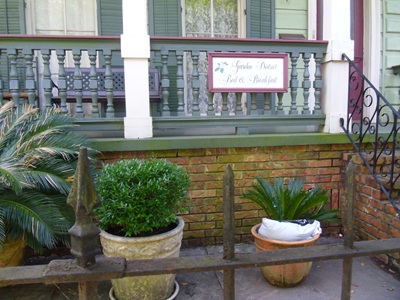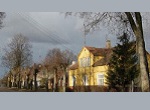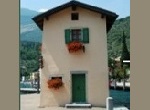Zoning for Bed and Breakfast Inns May Enliven Neighborhood
Last Reviewed: December 1, 2025
Zoning for bed and breakfast land uses may entail simply adding them as a permitted use in a zoning district, or it could include quite a list of regulations. The popularity of B&Bs can be a real boon to small towns and
cities off the beaten path that can't attract chain motel operators.
And many sociable people dream of running them. This page gives you, the community leader, quite a list of potential problems to consider.

In many situations, traditional B&Bs have been replaced by short-term rentals using internet platforms to secure guests for all or part of their homes and apartments. We provide a photo link at the bottom of this page to our short-term rental page, where regulatory issues raised by this phenomenon are addressed. There is some overlap between the two, obviously, but the bed and breakfast has a somewhat different connotation than merely somewhere to sleep or enjoy the beach or other nearby amenities. A B&B is supposed to be cozy, shall we say.
Not every town has a zoning ordinance, so in some places, licensing for a bed and breakfast may be merely a matter of meeting state requirements for fire safety and for sanitation related to the food service and to providing rooms for rent.
Many states exempt very small operations, such as the common bed and breakfast of one or two rooms within an owner-occupied structure. But if the town, township, or county where the proposed B&B is to be located does not have a zoning ordinance, be sure to check anyway for these other pertinent county or state inspection requirements.
Good Zoning for Bed and Breakfast Requirements
Since the bed and breakfast was not really an identified establishment as zoning ordinances were being written across the country, most places now have to decide where these uses fit in their ordinance. Some figured that a bed and breakfast means the same thing as a boarding house, which is a term found in many older or less updated zoning ordinances, but not a term widely used today.
Other towns have shown considerable uncertainty as to how
they should be treated under the zoning ordinance. Sometimes zoning
inspectors have simply overlooked such uses if only one or two rooms in an owner-occupied building are
involved.
However, it is a better practice for the municipality to provide for zoning for bed and breakfast uses within the zoning ordinance. With the reshuffling of the entire hospitality industry as we endured the Covid pandemic, now may be a good time to revisit your zoning requirements for this type of establishment. Some less desirable facilities may have gone out of business, and it's time to jump in with rethinking how to deal with new B&B businesses.
You might not be starting from zero in providing the regulations; older regulations for rooming houses or boarding houses might help you think through what you'd like you see in your neighborhoods.
Typically small establishments can be permitted within any residential zoning district, although you will want to add qualifying statements to the phrase permitting them. An example would be incorporating a long paragraph such as the following one in your list of permitted uses in a particular residential zoning district.
An example might state, "Bed and breakfast establishments are permitted, providing that not more than two rooms are devoted to the bed and breakfast use; that all state and local fire, sanitation, and food service provisions are met; that the owner also occupies the residence; that any food service is limited to breakfast for those purchasing lodging and is not advertised to the general public as a restaurant; and that at least one off-street parking space is provided per guest room."
Of course each of these clauses is debatable. I personally am a big fan of B&Bs, but I wouldn't want to see more than two rooms offered without the requirement of a conditional use permit that would specify how parking, food service, owner occupancy, sign regulation, outdoor lighting, and other matters are to handled.
Most municipalities are requiring that zoning for bed and breakfast use be granted only to owner occupants. You can do otherwise. If the owner is comfortable living across town or next door, maybe the municipality could be equally trusting of the owner's screening requirements. However, I surely would not want to see absentee owners who do not live or work in your city owning a bed and breakfast.
Almost all of the zoning for bed and breakfast ordinances I've seen prohibit adding buildings to the property in order to add more rooms. If an owner needs to add other buildings, they are constructing a hotel or some other use.
Sometimes zoning ordinances require that no room additions can be made to accommodate the bed and breakfast. If you are actively trying to encourage the development of such establishments, to solve your need for more lodging, be aware that such provisions may slow your path to meeting this policy goal.
If you want to prohibit room additions to preserve neighborhood character or local historic districts, those are worthy motives.
Perhaps you can consider a mechanism for room additions to be permitted, however, if they would be permitted to other homeowners in that same zoning district.
Handling the extra parking also seems problematic. We prefer to see an off-street space required for each room for rent, but the result sometimes becomes a very wide and ugly driveway. Better would be off-street parking arrangements in the rear yard off of an alley, with fencing or a hedge to screen the parking.
Parking alone seems to be sufficient reason to require every application for zoning for bed and breakfast inns to require a special use or conditional use permit.
One small sign seems imperative if the B&B has more than a couple of rooms. Permitted maximum surface areas of the sign vary from three to eight square feet; we think the smaller end of that range is sufficient.
You have the choice to require the sign to be mounted on the building face or to allow the sign to be free-standing in the front yard or attached to a mailbox. Review this on a case-by-case basis, or choose the option that is more compatible with the look and feel of the neighborhood.
If you do not wish to allow any signage, one way to handle wayfinding is to require extra large house numbering. You should require every house to be numbered anyway, for the sake of fire and emergency response, so just require the bed and breakfast to have large numbering.
Beyond a couple of rooms, you should require a site plan
approval, and then cover some operational requirements in a conditional use
permit. You need to make sure that public services are adequate, so you
would like a periodic review of fire safety, electrical capacity, and adequacy of
water and sanitary service lines.
Take into account your state's laws governing hospitality establishments and restaurants, and it's possible that what suddenly seemed to be an adequate water supply wouldn't be so satisfactory any more.
Some states and/or municipalities will limit the food service to pre-packaged items, or spell out that only a continental type of breakfast with commercially furnished pastries is permitted. To us, that spoils the fun of being a bed and breakfast guest, but follow state law.
Some bed and breakfast inns of the larger variety (and what constitutes a "home," an "inn," and so forth might vary from state to state) also have been known to serve an optional dinner.
In that instance you might want to move more toward county or state restaurant regulations, but on the other hand, if this is a two- or three-room B&B, you would be regulating the equivalent of a private dinner party.
Speaking of private matters, express your community standards in deciding whether you want to allow shared bathrooms or not. Many places do allow that practice, which after all is common even in larger hotels in Europe.
Occasionally municipalities grant the zoning for bed and breakfast homes or inns for a finite number of years, presumably to allow them to reimpose any new standards that may be required or suggested as "state of the art" in fire safety, hotel sanitation, or food safety.
Sometimes zoning for bed and breakfast uses allows for revocation of that zoning-related approval, whether it is a conditional or special use, after a public hearing.
Advantages and Disadvantages of Allowing B&Bs in Your City
Most city neighborhoods, small towns, and small cities should encourage bed and breakfast development in charming parts of town. This can be a vital part of growing a tourism and economic development strategy.
So do not make it too tough on an owner-occupied household to treat two of its bedrooms as guest bedrooms. Just write your regulations in such a way that the municipality has maximum flexibility to dictate terms and conditions, and to revoke the deal if it isn't working.
One way to address the feeling that bed and breakfast zoning would be appropriate in some parts of town and not in others would be to impose an overlay zone where the B&B use would be permitted. Usually, but perhaps not always, the overlay zone would cover the older parts of your town or city.
You don't want to destroy neighborhood character merely to provide tourist lodging. But on the other hand, zoning for bed and breakfast accommodations provides an appealing alternative that allows tourists to experience your ambiance.
Understanding of your local culture breeds a kind of brand loyalty that will lead to return visits.
Importantly, allowing the bed and breakfast also provides a way to allow folks of rather ordinary means to afford to restore some eccentric old mansion that otherwise would deteriorate and eventually become an empty building. Quirkiness, especially when combined with large size and plenty of deferred maintenance, may make homes less than marketable as single-family homes. This situation sometimes becomes a good justification for zoning for bed and breakfast establishments.
The coronavirus pandemic caused an upheaval in the lodging industry, and the bed and breakfast, short-term rentals, inns, hostels, hostals, agriturismos, gites, and other lodging establishments will no doubt see some places go out of business or reorganize. If searching for a new land use for a defunct small bed and breakfast, note our answer to a site visitor's question about whether a bed and breakfast can or should become a group home.
Read More Pages Related to Bed and Breakfast Inns
- Making and Keeping a Good Community ›
- Zoning and Codes › Bed and Breakfasts
Join GOOD COMMUNITY PLUS, which provides you monthly with short features or tips about timely topics for neighborhoods, towns and cities, community organizations, and rural or small town environments. Unsubscribe any time. Give it a try.




